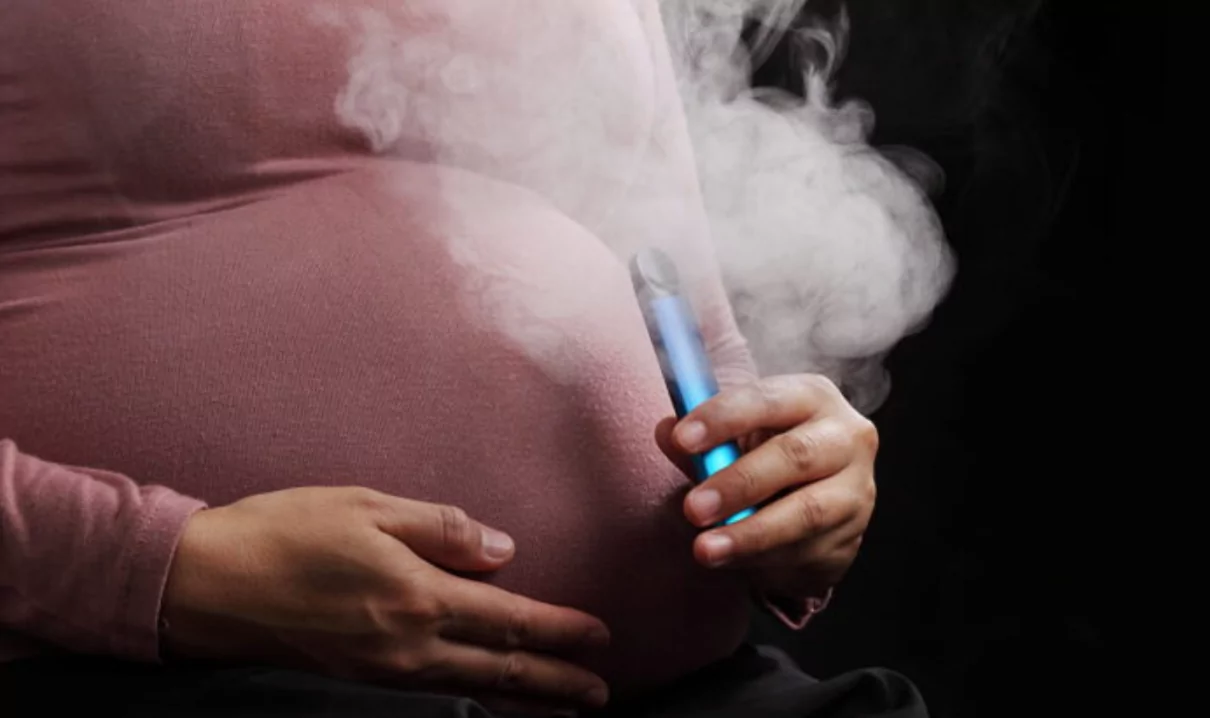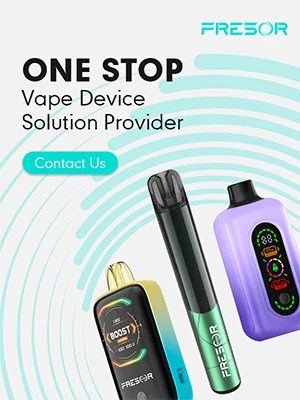Is Vaping Safe During Pregnancy

22 May 2024
We all know how dangerous cigarette use can be to pregnant women. Research published by the U.S. Department of Health and Human Services reveals that pregnant women who smoke have a higher likelihood of delivering their babies prematurely. Preterm birth is a major contributor to infant mortality, low birth weight, disability, and illness among newborns. In this regard, health care providers make recommendations for smoking cessation for pregnant people.

But what about vaping during pregnancy? Is it safe? You might already have heard that vaping is a safer alternative to the alternative smoke. The reasoning here is that potentially harmful chemicals found in traditional cigarette smoke (which comprises a deadly mix of over 7,000 chemicals including heavy metals, tar or carbon monoxide) contrast starkly with the fewer toxic substances typically present in e-cigarette aerosol. However, this does not mean that e-cigarette smoking is good for pregnant women.
This article explores the question of e-cigarette smoking during pregnancy. But first, let us check out some of the myths you are likely to hear or have already heard about this issue.
Myths About Vaping And Pregnancy
Myth 1: Vaping is a Safe Alternative to Cigarettes
You have probably heard about it. This is a dangerous misconception. Vaping exposes the mother and fetus to potentially harmful chemicals, including nicotine and other toxins present in e-cigarette aerosols. We will discuss the risks e-cigarettes poses to pregnant mothers in the next section.
Myth 2: Vaping Helps Pregnant Women Quit Smoking
Expectant mothers who are addicted to smoking cigarettes have been told the best way to get rid of it is through vaping. That is entirely not true. E-cigs can be as dangerous as traditional cigarettes. Evidence suggests that vaping still poses risks to fetal health and could result in intrauterine growth restriction.
Myths 3: Myth: E-Cigarettes Only Emit Water Vapor and That Is Not Risky
Contrary to popular belief, e-cigarette aerosols contain more than just water vapor. Potentially harmful chemicals found in e-cigarettes such as nicotine and flavorings can be detrimental to fetal development.
Risks of Vaping During Pregnancy
People quit smoking for many reasons. One of the reasons is pregnancy. You need a healthy start to the 9-month walk, which is why you should quit the moment you notice you are expectant. This applies to both smoking cigarettes and electronic cigarettes. Failing to quit smoking can bring lots of risks to your pregnancy and your developing baby. In this section, we will see some of the risks associated with smoking electronic cigarettes during pregnancy.
Nicotine Exposure
When a pregnant individual vapes or smokes, nicotine crosses the placenta and reaches the fetus. This cross-over impacts critical stages of brain and organ development. The Centers for Disease Control and Prevention compiled some alarming stats that portray the harmful effects of nicotine exposure. One study postulates that smoking while pregnant can lead to tissue damage in developing babies, especially affecting the lungs and brain. Research indicates a potential association between maternal smoking and the occurrence of cleft lip. Nicotine consumption could also lead to long-lasting consequences, including behavioral issues, cognitive impairments, and increased risks of premature birth and low birth weight. For the health of the unborn baby, expectant mothers must avoid all forms of nicotine intake, be it through smoke cigarettes or electronic cigarette exposure.
Preterm Birth and Pregnancy Complications
According to a report published in 2010, women who smoke have more difficulty becoming pregnant and have a higher risk of never becoming pregnant. This applies to both electronic cigarettes and traditional tobacco smoke. Vaping during pregnancy has also been associated with an increased risk of premature birth, which can lead to a range of health problems for the newborn, including respiratory distress, lung disease, and long-term health issues.
Exposure to Harmful Substances
We have already mentioned the risks associated with nicotine during pregnancy. Nicotine is one of the many substances that expectant mothers are exposed to. Electronic cigarettes during pregnancy still expose the mother and fetus to other harmful substances like ultrafine particles, Propylene Glycol, Vegetable Glycerin, and other volatile organic compounds. Although in lower amounts compared to traditional cigarette smoke, utero exposure to such products could be devastating. Please note that electronic vapor products do not produce tar or carbon monoxide since they rely on electronic nicotine delivery systems. Vapes are not involved in combustion, which is the process that generates carbon monoxide in traditional cigarette smoke.
Complications with Placental Function
Vaping can affect the function of the placenta. The placenta is crucial for delivering oxygen and nutrients to the developing fetus. Disrupted placental function can result in pregnancy complications such as preeclampsia or fetal growth restriction.
Behavioral and Cognitive Issues
ADHD is a least known risk of nicotine and other additives of tobacco products. Nicotine exposure during pregnancy has been associated with behavioral and cognitive problems in children, including attention deficit hyperactivity disorder (ADHD) and learning difficulties.
Respiratory Issues
Vaping during pregnancy may increase the risk of respiratory problems in both the mother and the baby. The aerosol from e-cigarettes can irritate the respiratory tract and compromise lung function.
Advantages of Quitting Smoking and Vaping During Pregnancy
Stopping smoking and vaping during pregnancy is one of the most important steps expectant mothers can take to promote a healthy pregnancy and ensure the well-being of their unborn child. We have already seen what smoking in pregnancy can do to you and your unborn baby. Tobacco products, whether from traditional cigarettes, secondhand smoke, or e-cigarettes, contain harmful substances that can pose adverse effects on fetal development and maternal health. By deciding to stop smoking and vaping, pregnant individuals can significantly reduce these risks and improve their chances of a successful pregnancy. Here are the benefits expectant mothers get when they stop smoking.
Reduced Risk of Complications: The decision to stop smoking and vaping during pregnancy significantly reduces the risk of complications such as premature birth, low birth weight, and placental problems. This can lead to a healthier pregnancy and better outcomes for both the mother and baby.
Improved Oxygen Supply: Smoking and vaping restrict oxygen flow to the fetus by narrowing blood vessels and reducing oxygen-carrying capacity. When you stop smoking, you allow for improved oxygen delivery to the developing baby.
Lower Risk of Birth Defects: Smoking and vaping during pregnancy are associated with an increased risk of birth defects, including heart defects and cleft lip/palate. Quitting can reduce this risk and promote normal fetal development.
Enhanced Lung Development: Smoking and vaping expose the fetus to harmful chemicals that can impair lung development. Quitting smoking and e-cigarette use allows the baby's lungs to develop properly, reducing the risk of respiratory issues after birth.
Reduced SIDS Risk: Smoking during pregnancy is linked to an increased risk of sudden infant death syndrome (SIDS). Quitting smoking and vaping lowers this risk.
Financial Savings: When you stop smoking and using e-cigarettes, you become better positioned to save money that would have been spent on e-cigarettes and other tobacco products, which can be redirected towards essential items for the baby or other family needs.
Comparative Risks: Vaping vs. Smoking
Many smokers, both old and young women also want to know which one between traditional cigarettes and e-cigarettes is riskier. While smoking in pregnancy is known to be dangerous, some people suggest vaping as an alternative. Oftentimes, you will hear someone say “An e-cigarette can help you stop smoking.” How true is this statement? This section briefly explains the comparative risks between e-cigarettes and conventional smoking.
Chemical Exposure
Smoking: Traditional cigarettes contain over 7,000 chemicals. They produce tar, carbon monoxide, and numerous carcinogens formed during combustion.
Vaping: An e-cigarette is a typical heating device that produces an aerosol (vapor) that typically contains fewer harmful chemicals than cigarette smoke. However, the aerosol may still contain nicotine, ultrafine particles, and other potentially harmful substances.
Nicotine Content
Smoking: Cigarettes deliver nicotine along with toxic chemicals that contribute to addiction and various health risks.
Vaping: E-cigarettes can also deliver nicotine, but the nicotine content can vary. Some e-liquids contain high levels of nicotine, which can be addictive and harmful, especially during pregnancy. The liquid typically contains varying levels of nicotine depending on the brand or user preferences.
Health Risks
Smoking: Smoking is a known cause of lung cancer, heart disease, respiratory illnesses, and other serious health conditions. It is a leading preventable cause of death worldwide.
Vaping: The long-term health effects of vaping are still being studied. While vaping is generally considered less harmful than smoking, it is not risk-free. Potential risks may include lung damage, cardiovascular issues, and adverse effects on respiratory and immune function.
Pregnancy and Child Health:
Smoking: Smoking during pregnancy is associated with increased risks of premature birth, low birth weight, birth defects, and infant mortality.
Vaping: Vaping during pregnancy may still pose risks to fetal development, although these risks may be lower compared to smoking. Nicotine exposure from vaping can impact fetal growth and development, leading to potential health issues later in life.
Therefore, while vaping is often portrayed as a less harmful alternative to smoking, it is not risk-free, especially during pregnancy.
Guidance and Recommendations
Nicotine replacement therapy
Nicotine replacement therapy (NRT) during pregnancy involves using products like nicotine patches or gum to help manage nicotine cravings while minimizing exposure to harmful substances found in tobacco smoke. NRT provides controlled doses of nicotine to reduce withdrawal symptoms without the toxins present in cigarettes. This approach can assist pregnant individuals in quitting smoking by alleviating cravings and making the quitting process more manageable and safer for both the mother and baby.
Conclusion
quitting smoking and vaping during pregnancy is vital for a healthy pregnancy and the well-being of both mother and baby. By avoiding tobacco and e-cigarette products, expectant mothers reduce risks of complications like premature childbirth and birth defects. This promotes better pregnancy outcomes and long-term health.
FAQs
Can you vape while pregnant with no nicotine? Vaping while pregnant, even without nicotine, is not recommended. E-cigarette aerosols contain other potentially harmful substances that can affect fetal development and health.
Can vaping cause a miscarriage in early pregnancy? Exposure to certain chemicals in e-cigarette aerosols could potentially increase the risk of miscarriage.
At what stage of pregnancy does smoking affect the baby? Smoking can affect the baby at any stage of pregnancy. However, exposure to cigarette smoke during early pregnancy can have more significant impacts on fetal development.
Does vaping affect getting pregnant? Vaping may affect fertility. Nicotine and other substances in e-cigarettes can impact reproductive health and may affect the ability to conceive.

























